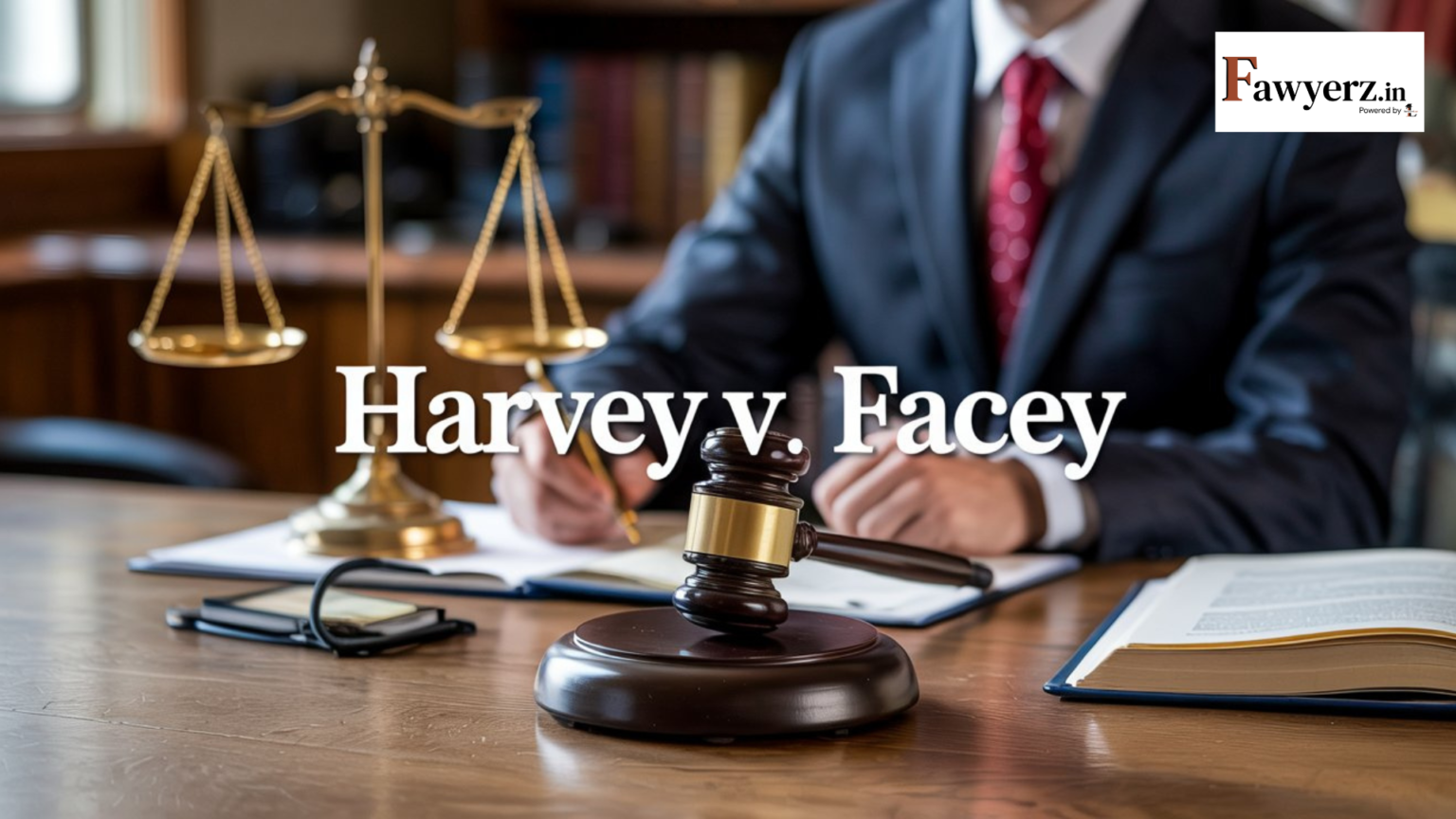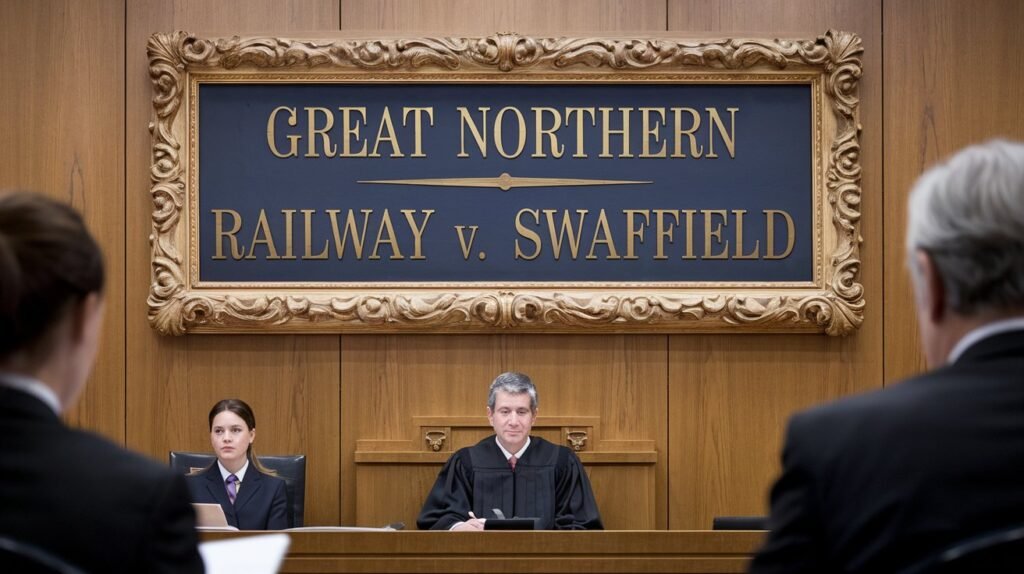Harvey v. Facey 1893 (Case Summary)

This case laid the foundation for distinguishing between a mere supply of information and a binding offer in contract law. The Privy Council held that quoting a price in response to a query does not in itself amount to an offer, thereby emphasizing the significance of offer and acceptance in forming enforceable agreements.
Table of Contents
ToggleFacts of Harvey v. Facey
- Harvey (Appellants) and Facey (Respondents) were engaged in negotiations over the sale of a property known as Bumper Hall Pen.
- The Appellants, Harvey, sent a telegram to the Respondents, Facey, which stated: “Will you sell us Bumper Hall Pen? Telegraph lowest cash price.
- Facey responded with a telegram: “Lowest price for Bumper Hall Pen £900.”
- Harvey then sent a final telegram stating: “We agree to buy Bumper Hall Pen for the sum of nine hundred pounds asked by you.” Facey refused to sell the property, leading to a dispute.
Issues framed
- Whether the telegram sent by Facey constituted a binding offer capable of acceptance?
- Whether a valid contract had been formed between Harvey and Facey?
Subordinate Court Judgment
Trial Court (Jamaica): Dismissed the suit stating no concluded contract existed.
Court of Appeal (Jamaica): Reversed the Trial Court’s decision and stated that an agreement did exist and awarded Harvey damages against Facey.
The case then went to the Judicial Committee of the Privy Council.
Judgment of Harvey v. Facey
The Privy Council applied the common law principles of law of contracts, specifically the doctrines of offer and acceptance.
The Privy Council distinguished between an “offer” and a “mere supply of information.” It held that Facey’s reply only provided the lowest price he would accept and did not amount to an offer to sell.
The Privy Council clarified that Facey’s telegram did not constitute an offer, but rather a response to a request for information, which is legally classified as an invitation to treat (offer). Since there was no intention to be bound by merely stating the lowest acceptable price, Harvey’s acceptance was of something that was never offered, thus failing to create mutual assent, a fundamental requirement under the doctrine of offer and acceptance.
The Court ruled in favor of Facey, stating that no contract had been formed; the court further observed that a mere statement of the lowest price at which the vendor would be willing to sell contains no implied contract to sell at that price to the person making the inquiry.





